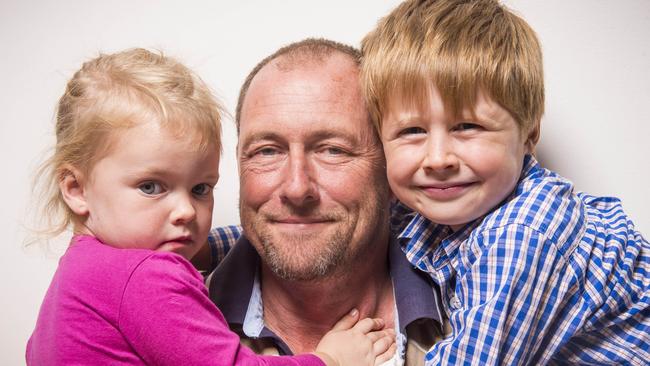New hospital trial to use peer support to help survivors cope with near-death experiences
AT first it was put down to ‘man flu’, but within days Peter Goldsmith was hallucinating, babbling and walking into walls. But what was the mystery illness that nearly killed him?

VIC News
Don't miss out on the headlines from VIC News. Followed categories will be added to My News.
FOR a man who doesn’t own or work with birds, ‘parrot fever’ was the last thing that Peter Goldsmith thought could kill him.
He went from suspected ‘man flu’ to ICU in a matter of days and, while he was eventually brought back from the brink, like so many survivors of a near-death experience, the mental scars remained.
An Australian-first trial aims to ease the psychological trauma experienced by our sickest patients and their families by using peer support to coach them through the ordeal.
Western Health physiotherapist and research leader Dr Kimberley Haines said post-intensive care syndrome can develop after a hospital stay in patients or their families.
“Often the patients don’t remember the ICU stay that well or they have fragmented memories, whereas the families are the ones keeping that bedside vigil, which can be quite traumatising for them; watching a love one go through that invasive and burdensome therapy,” Dr Haines said.
Like so many patients, the Benalla farmer and mechanic went downhill rapidly.
The 48 year old thought he had a cold, but within a week he was hallucinating, walking into walls and babbling.
Lying in Footscray Hospital with bilateral pneumonia, his lungs were 80 per cent full of fluid and his heart, liver and renal system were failing. His wife Elizabeth was told he may not make it.
Puzzlingly, the most likely cause was psittacosis, also known as parrot fever, which is caused by inhaling a bacterium found in birds faeces.
“The doctors kept asking me if I kept parrots or chickens and I could only shake my head,” Mr Goldsmith said.
Last year there were just 21 cases of the illness recorded in Australia, eight occurred in Victoria.

He suspects he picked it up from working around farm equipment with chicken poo on it.
To their amazement, Mr Goldsmith’s outlook suddenly changed, as the medication and specialist care took effect.
While the couple were relieved, the trauma they experienced endured.
“I kept on reflecting on what was going on and what happened,” Mr Goldsmith said.
“After a few days in ICU I was conscious, even though I had the tubes and drips coming out of me, so I could understand what the doctors were saying, but I just couldn’t talk to them, which was very frustrating.
“People were dying around me so you just keep on wondering if it’s you next.”
The trial of the peer support program started last week at Sunshine and Footscray hospitals, it aims to improve resilience and reduce anxiety, psychological distress, depression or post-traumatic stress.
For more information: icu.resolve@wh.org.au or 0466 417 689


